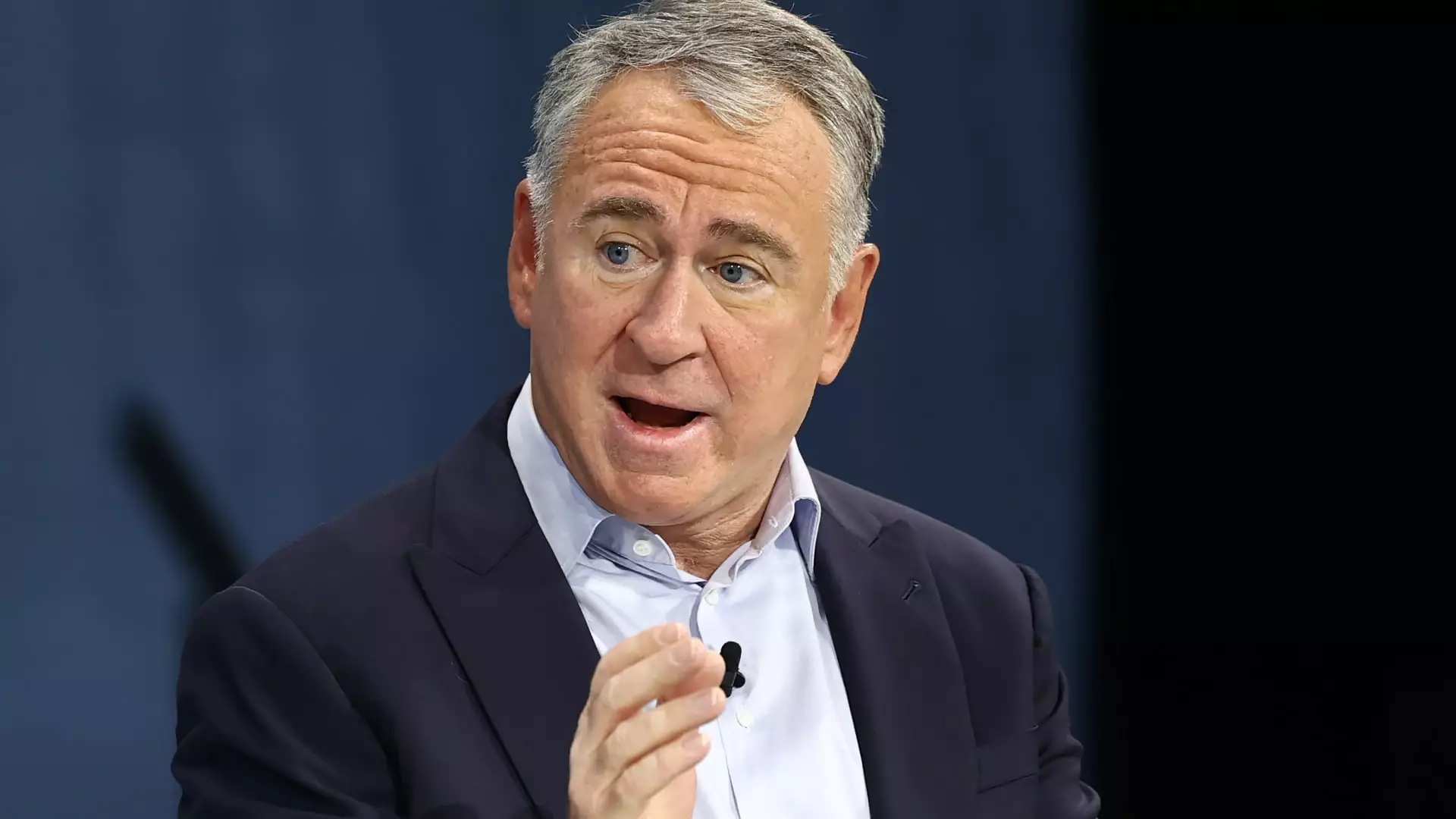In the intricate world of global trade, the rhetoric employed by political leaders holds significant power. Ken Griffin, the CEO of Citadel, recently articulated serious concerns regarding the tone of President Donald Trump’s trade policy. During a talk at the UBS Financial Services Conference in Key Biscayne, Florida, Griffin highlighted that the aggressive language surrounding trade negotiations has serious implications. He asserted, “From my vantage point, the bombastic rhetoric, the damage has already been done.” Griffin’s viewpoint reflects a growing concern among business leaders who argue that such confrontational discussions can erode trust in America as a reliable trading partner.
The recent executive order signed by President Trump to impose 25% tariffs on steel and aluminum imports has heightened tensions in international trade. This move was not an isolated decision, as the administration had already introduced a 10% duty on Chinese imports, with a temporary pause on 25% tariffs for goods from Canada and Mexico. For Griffin, these policies may compel multinational corporations to rethink their long-term investment strategies. He warned that unpredictable trade dynamics can complicate planning for substantial economic commitments, especially over extended timelines. Such tariffs do not merely affect the immediate financial landscape; they also create uncertainty that can stifle growth prospects for companies that rely on stable trading conditions.
Multinational companies thrive on the predictability of trade agreements and economic policies. Griffin’s insights reveal a critical challenge: the volatility introduced by tariffs could deter significant capital investments that are essential for long-term growth. “It makes it difficult for multinationals to think about how to plan for the next five, 10, 15, 20 years,” he remarked. This uncertainty can lead corporations to miss out on opportunities as they hesitate to invest in new projects or scale existing ones. Companies are likely to become risk-averse when faced with an unstable trade environment, which emphasizes the need for consistent and constructive dialogue in international relations.
Additionally, Griffin has previously expressed concerns about the rise of crony capitalism as a byproduct of protectionist trade policies. This scenario could manifest when government officials and business leaders forge intertwined relationships, potentially compromising the integrity of economic decision-making. Griffin’s forewarning suggests that tariffs may not only impede the mechanics of trade but also foster an environment where corruption flourishes under the guise of economic patriotism. Such conditions could further alienate businesses from pursuing innovative partnerships and raising capital, contributing to stagnation in the economy.
As the landscape of U.S. trade policy evolves under the current administration, the need for balanced and rational discourse is more pressing than ever. Griffin’s insights serve as a reminder that the tone of communication and the regulatory environment can profoundly impact business operations and investment prospects. It is imperative for leaders, both in government and the private sector, to engage in constructive dialogue to foster trust, stability, and sustainable economic growth. Only then can the U.S. emerge as a valued and dependable trading partner on the global stage.

